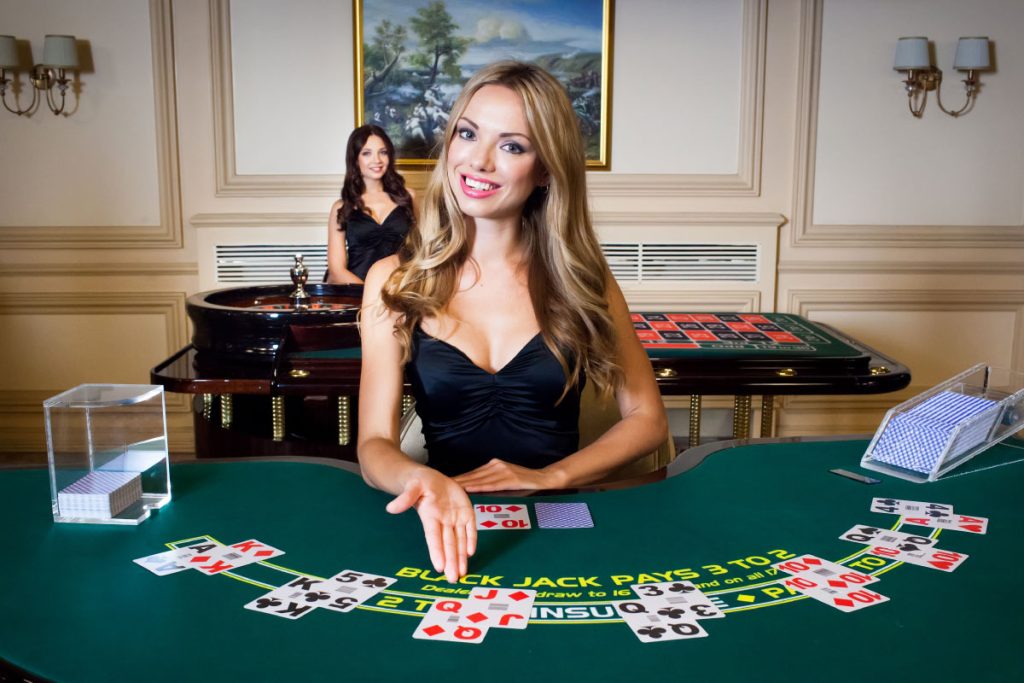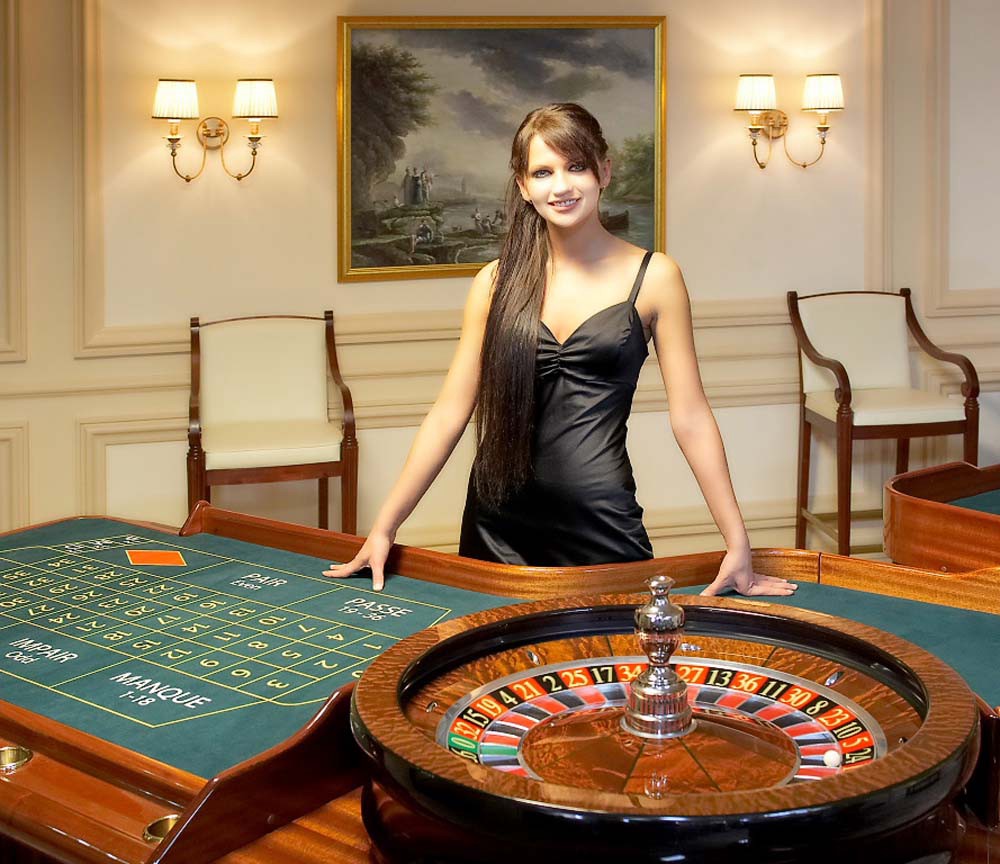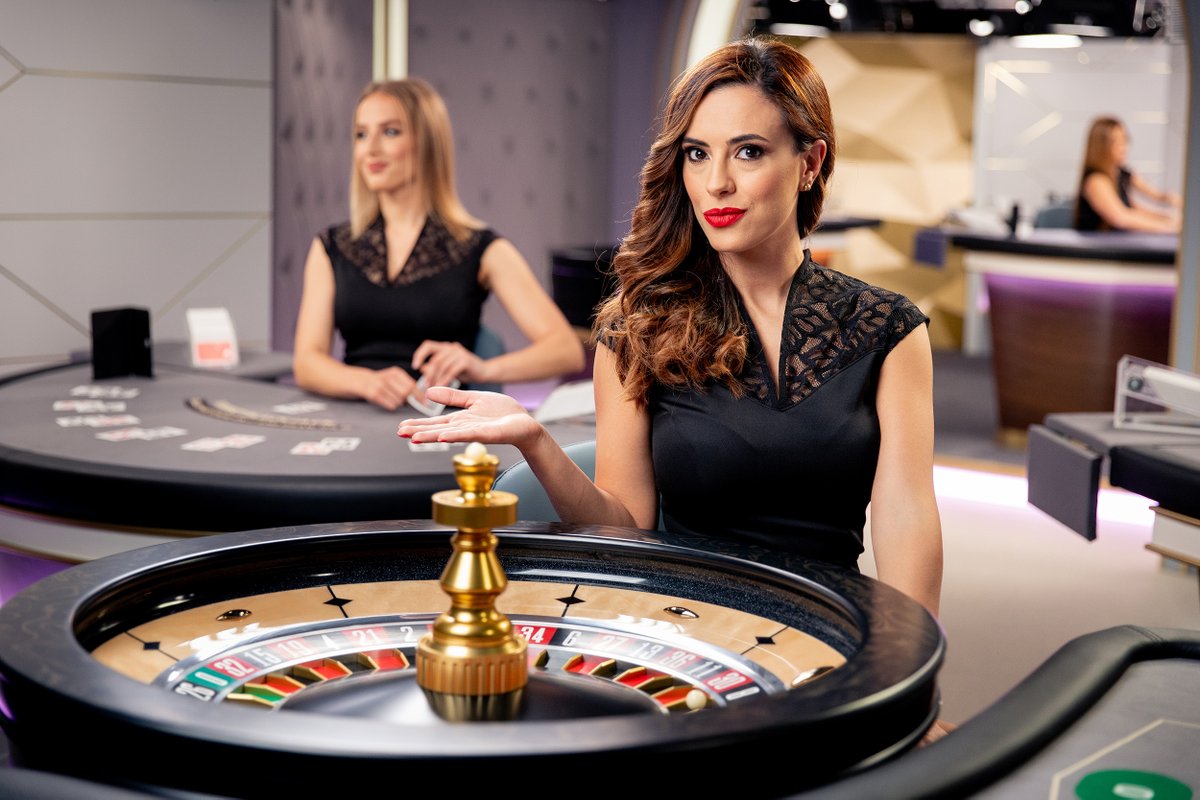Dealer functions
The dealer’s functions depend on the game, as blackjack does not have the same development as poker or other card games. Broadly speaking, their duties involve dealing with the customer, welcoming them to the table. They are also in charge of shuffling and dealing the cards, which in games such as blackjack may include taking steps to avoid the temptation of card counting by some players as long as electronic tools are not used to do so.
Once dealt, the dealer should ask how many cards the player wants in each round, not forgetting possibilities such as doubling down or splitting bets. They also have to memorise the players’ scores, and finally they have to pay winning bets and remove losing bets from the table. In poker, they must also manage and control the pot to avoid cheating.
Difference between dealer and croupier

We often refer to the dealer or croupier interchangeably, but it should be noted that they are not the same thing. Generally speaking, the dealer manages card games such as blackjack or poker and the croupier is responsible for live roulette, although the two are quite similar positions. They have very similar responsibilities, although the dealer’s skill at shuffling may have more influence on the game than the croupier’s skill at throwing the roulette ball.
Characteristics of a good dealer

Not everyone is qualified to be a good dealer, just as a dealer who is an expert at blackjack is not necessarily an expert at poker, or even baccarat. But in general terms, there are a number of characteristics that a good dealer should have.
People skills: for a table to be profitable (for the casino) it is necessary to have players at the table, and the role of the dealer is key to this. If he has people skills, he will be able to attract and retain players at his table, creating a good atmosphere and making it easier for players to bet at the table.
Sleight of hand: A good dealer will have sleight of hand, whether with cards or betting chips. He or she cannot make strange gestures or moves that might cause players discomfort, turn over cards prematurely, or make hand mistakes that damage his or her reputation and that of the casino.
Extensive knowledge of the game: A dealer should be as professional as possible. This includes a thorough knowledge of the game, whether it is the rules, the payout of bets or the strategies to be followed by the player. This is the only way to identify suspicious behaviour or patterns that may give rise to doubt.
Should you tip the dealer? This is a question many players ask themselves, and there are several things to consider. As a general rule, it is advisable to tip if you have won a good pot, although there are also those who tip if they feel well treated or who believe that karma will pay them back in the form of a future pot. There are countries where tipping is highly recommended – Spain is not – but it is always a nice gesture. Tipping is done with tokens, not real money, and should be done in a more or less disguised way, but never on the sly; and not all tips end up in the dealer’s hands.
